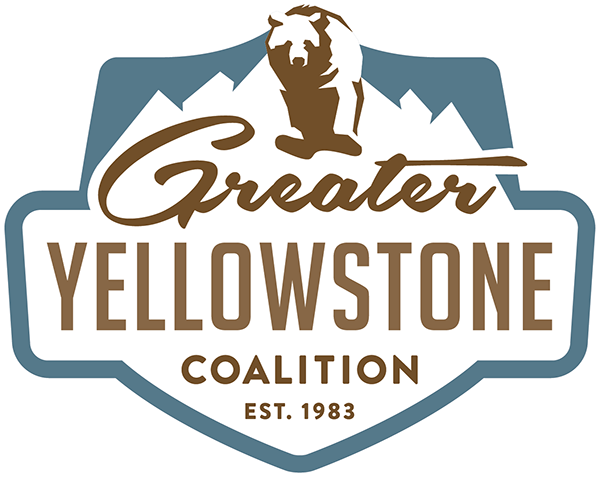GYC is thrilled to sponsor “Dam It: Partnering with Beavers to Heal the Planet” with environmental journalist and author Ben Goldfarb.
Join GYC, Gallatin Valley Earth Day, and many more sponsors on Thursday, January 16 at the Emerson Center for the Arts & Culture or online to celebrate and discuss one of Greater Yellowstone’s favorite ecosystem engineers. The discussion will also feature GYC’s Senior Climate Resiliency Associate Kurt Imhoff, who gave our beaver webinar presentation in April 2024.
Thursday, January 16 - Emerson Center for the Arts
6 p.m. Reception (Ballroom)
Free food & drink
Book signing with Ben Goldfarb for "Eager: The Surprising, Secret Life of Beavers and Why They Matter" by Country Bookshelf (Buy the book at the reception or reserve your book by pre-ordering it with Country Bookshelf, phone: (406) 587-0166)
Silent Auction with great items from Simms & Wild Birds Unlimited
Info tables from sponsors
7 p.m. Talk and Panel Discussion (Crawford Theater)
Panelists Include:
Ben Goldfarb
Connor Parrish (Trout Unlimited)
Kurt Imhoff (Greater Yellowstone Coalition)
Leah Thayer (World Wildlife Fund) (Note: Leah will also be the MC for the panel discussion)
Talk Description
In his book Eager: The Surprising, Secret Life of Beavers and Why They Matter, environmental journalist Ben Goldfarb reveals that our modern conception of a healthy ecosystem is wrong, distorted by the fur trade that once eliminated millions of beavers from North America’s waterways. The consequences of losing beavers were profound: ponds drained, wetlands dried up, and species from salmon to swans lost vital habitat. Today, a growing coalition of “Beaver Believers”—including scientists, farmers, and passionate citizens—recognizes that ecosystems with beavers are far healthier than those without them. From the Nevada deserts to the Scottish highlands, Believers are hard at work restoring these industrious rodents to their former haunts. In his talk, Ben will discuss the history and biology of this world-changing species; how beavers can help us fight drought, flooding, wildfire, and climate change; and how we can coexist with this challenging but vital rodent.
About Ben Goldfarb
Ben Goldfarb is an environmental journalist whose work has appeared in National Geographic, the Atlantic, Smithsonian Magazine, and many other publications. He is the author of Crossings: How Road Ecology Is Shaping the Future of Our Planet, named one of the best books of 2023 by the New York Times and recipient of the Sierra Club’s Rachel Carson Award, and Eager: The Surprising, Secret Life of Beavers and Why They Matter, winner of the PEN/E.O. Wilson Literary Science Writing Award. He lives in Colorado with his wife, Elise, and his dog, Kit — which is, of course, what you call a baby beaver.
Our Panelists:
Ben Goldfarb
See bio above
Kurt Imhoff
Kurt is the senior climate resiliency associate with the Greater Yellowstone Coalition (GYC).
He works across the Greater Yellowstone Ecosystem to build resilience and facilitate the adaptation of aquatic and terrestrial systems in response to climate change. From large landscape-scale planning to local project implementation, he helps facilitate the Greater Yellowstone Coalition’s efforts to safeguard lands, waters, and wildlife. Based in GYC’s Lander, Wyoming office, Kurt enjoys his work at the nexus of science, policy, and hands-on stewardship.
Connor Parrish
Connor Parrish is a Project Manager for Trout Unlimited. Connor has a bachelor’s degree in Natural Resources Sciences and a master’s degree in Biology with an emphasis on freshwater fisheries. Before moving to Montana in 2021 for his job with TU, he spent 10 years working in various positions supporting research, monitoring, and restoration of salmon and trout populations in the Columbia River basin. Connor was a member of the Washington Beaver Working Group and currently represents TU as a member of the Montana Beaver Working Group. Locally, Connor works in the Gallatin and Madison watersheds implementing restoration projects. These projects frequently involve techniques that mimic beaver dams and encourage beavers to recolonize streams and wetlands for the benefit of our fish, wildlife, and local community.
Leah Thayer
Leah Thayer serves as a Big Sky Watershed Corps member with the World Wildlife Fund’s Sustainable Ranching Initiative team, working to restore prairie streams and enhance drought resilience within the grasslands of the Northern Great Plains. Leah’s mission is to further science-based solutions for conserving wildlife and natural resources in the face of global climate change, so that nature and humans can thrive alongside one another for generations to come.
In Leah’s role with the World Wildlife Fund's Sustainable Ranching Initiative, she spearheads low-tech process-based mesic restoration projects on agricultural lands in Montana to restore stream health, improve landscape drought resilience, and support rural communities.
In partnership with Madison-Gallatin Trout Unlimited with additional support from the Sacajawea Audubon Society, Gallatin Wildlife Association, Greater Yellowstone Coalition, Montana Freshwater Partners, Simms, Country Bookshelf, Wild Birds Unlimited and the Gallatin Watershed Council.
